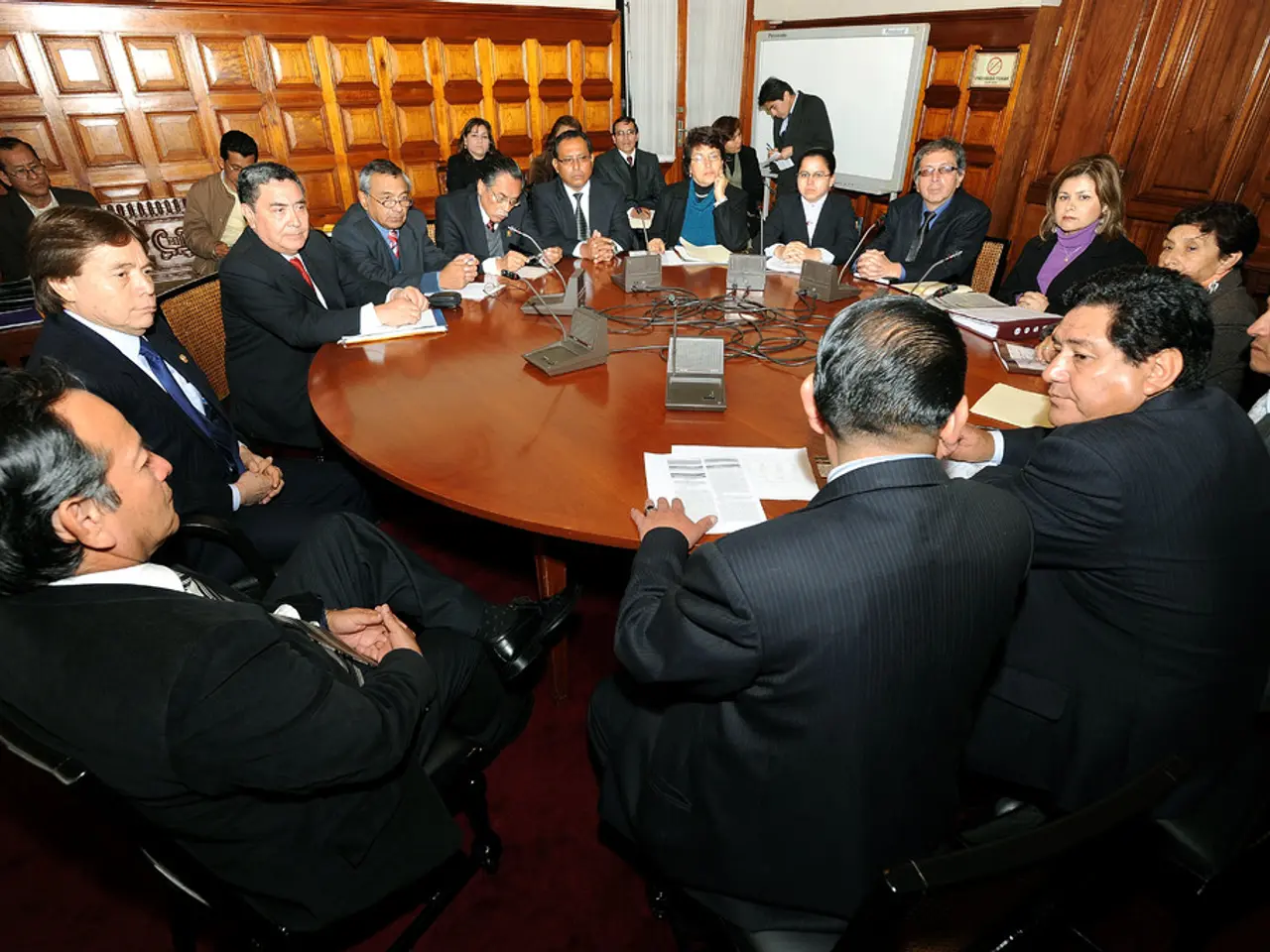Strategies for Group Activism and Grassroots Mobilization
In the ongoing pursuit of environmental and social justice, the People Power Manual's Community Organising Guide serves as a valuable resource for activist educators, facilitators, and community leaders. This comprehensive guide, the second instalment in the People Power Manual series, is a unique resource for campaigners and organisers alike, offering a wealth of insights and practical tools for effective community organising.
The guide begins by defining the terrain, providing a clear understanding of what organising is and what it is not. It delves into various types of community organising and the differences between organising, mobilising, advocacy, and community development.
The guide is not a cookbook; it is a menu of options, offering processes and handouts contained in the Manual's six guides as no substitute for experience and the skill of listening, creating a sense of safety and trust in a group, and creatively responding to the needs of participants by adapting and designing new processes in situ.
The guide deepens understanding of core organising skills such as relational meetings, self-interest, the power of story in organising, building alliances, coalitions, and networks, holding decision-makers accountable, leadership development, recruitment, doorknocking, and phonebanking.
Key skills emphasised in the guide include leadership, communication, building power and equity, capacity building for resilience and well-being, and community representation and engagement.
Leadership is about setting clear expectations, modeling desired behaviours, and building trust through empathy and integrity to inspire and mobilise people effectively. Communication involves ensuring clarity, transparency, and inclusivity in messaging to align team members and community participants with shared goals.
Building power and equity centres equity in organising practices, being accountable to marginalised communities, and fostering a more just and equitable future through collective power-building. Capacity building for resilience and well-being develops sustainable structures and practices that support people, funding, and organisational infrastructure over the long term.
Community representation and engagement involves developing thoughtful questions, ensuring diverse community representation, and facilitating collaborative processes that amplify voices equitably.
The guide includes a range of process guides, including 'Understanding your community', 'Building strong teams', 'Developing and supporting leaders', 'Listening campaigns and Table Talks', 'Coalitions, Alliances and Networks', 'Moving people to action', and 'Accountability Sessions'.
Each of these process guides offers practical tools and strategies for effective community organising. For instance, the 'Understanding your community' process guide covers processes for exploring entering, mapping, and exiting a community. The 'Building strong teams' guide provides guides for Circles of Commitment and leadership development.
The guide also covers the role of stories and the use of personal biography in organising, and the importance of mastering the role narrative plays in connecting with and mobilising others.
The guide ends with sample workshop schedules, case studies, online resources, and reference material for further reading, making it a comprehensive resource for anyone seeking to make a difference in their community.
The Community Organising Guide is available for purchase, in hard copy or download, from the Change Agency. With its wealth of insights and practical tools, this guide is an essential resource for anyone looking to make a positive impact in their community and contribute to the ongoing pursuit of environmental and social justice.
- The People Power Manual's Community Organising Guide serves as a valuable resource for educators, facilitators, and community leaders seeking effective community organising strategies.
- The guide offers processes and handouts targeted at organising skills, such as relational meetings, self-interest, building alliances, leadership development, and doorknocking.
- The guide emphasizes core organising skills like leadership, communication, building power and equity, capacity building for resilience and well-being, and community representation and engagement.
- The Community Organising Guide also covers the role of stories and personal biography in organising, and the importance of understanding community needs through methods like exploring, mapping, and exiting a community.
- To supplement learning, the guide provides sample workshop schedules, case studies, online resources, and reference material for further reading, acting as a supportive tool for changemakers, activists, and anyone dedicated to personal growth and education-and-self-development in community organising.




